
South Bank: London's Riverside Cultural Oasis
South Bank, nestled along the River Thames, is a vibrant cultural and artistic hub in the heart of London. This lively neighborhood is known for its rich history, stunning architecture, and a plethora of attractions that cater to all tastes. A stroll along the riverfront offers breathtaking views of iconic landmarks such as the Houses of Parliament, Big Ben, and the London Eye, making it a perfect spot for photography enthusiasts. As you wander through South Bank, you'll discover a treasure trove of cultural experiences. The area is home to world-renowned institutions like the National Theatre, the Southbank Centre, and the BFI Southbank, where you can catch performances ranging from cutting-edge theatre to classic cinema. For art lovers, the Hayward Gallery showcases contemporary art exhibitions that are both thought-provoking and visually stunning. Foodies will delight in the diverse culinary offerings available in South Bank. From charming riverside cafes and gourmet food markets to upscale dining at the OXO Tower Restaurant, there's something to satisfy every palate. Don't miss the Southbank Centre Food Market, where you can sample delicious street food from around the world. South Bank is also a haven for families, with attractions like the SEA LIFE London Aquarium and the interactive exhibits at the London Dungeon providing endless entertainment for children and adults alike. The neighborhood's open spaces, such as Jubilee Gardens and Bernie Spain Gardens, offer a peaceful retreat for picnics and leisurely walks. Whether you're a culture vulture, a foodie, or just looking for a scenic spot to unwind, South Bank has something to offer everyone. Its unique blend of history, culture, and modern attractions makes it a must-visit destination in London.
Local tips in South Bank
- Visit the Southbank Centre Food Market on weekends for a vibrant street food experience.
- Book theatre tickets in advance, especially for popular shows at the National Theatre.
- Take a ride on the London Eye at dusk for spectacular views of the city skyline.
- Explore the area on foot or rent a bike to fully appreciate the scenic riverside paths.
- Check the Southbank Centre's event calendar for free outdoor concerts and festivals.
South Bank: London's Riverside Cultural Oasis
South Bank, nestled along the River Thames, is a vibrant cultural and artistic hub in the heart of London. This lively neighborhood is known for its rich history, stunning architecture, and a plethora of attractions that cater to all tastes. A stroll along the riverfront offers breathtaking views of iconic landmarks such as the Houses of Parliament, Big Ben, and the London Eye, making it a perfect spot for photography enthusiasts. As you wander through South Bank, you'll discover a treasure trove of cultural experiences. The area is home to world-renowned institutions like the National Theatre, the Southbank Centre, and the BFI Southbank, where you can catch performances ranging from cutting-edge theatre to classic cinema. For art lovers, the Hayward Gallery showcases contemporary art exhibitions that are both thought-provoking and visually stunning. Foodies will delight in the diverse culinary offerings available in South Bank. From charming riverside cafes and gourmet food markets to upscale dining at the OXO Tower Restaurant, there's something to satisfy every palate. Don't miss the Southbank Centre Food Market, where you can sample delicious street food from around the world. South Bank is also a haven for families, with attractions like the SEA LIFE London Aquarium and the interactive exhibits at the London Dungeon providing endless entertainment for children and adults alike. The neighborhood's open spaces, such as Jubilee Gardens and Bernie Spain Gardens, offer a peaceful retreat for picnics and leisurely walks. Whether you're a culture vulture, a foodie, or just looking for a scenic spot to unwind, South Bank has something to offer everyone. Its unique blend of history, culture, and modern attractions makes it a must-visit destination in London.
Iconic landmarks you can’t miss
Southbank Centre
Explore London's vibrant cultural hub at Southbank Centre, where art, music, and creativity come alive along the River Thames.
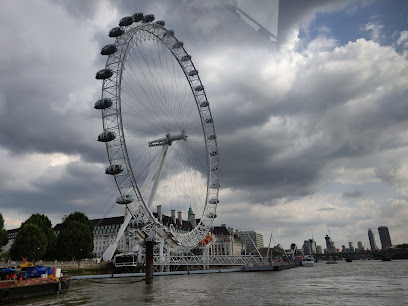
County Hall
Historic riverside landmark blending Edwardian grandeur with immersive theatre and cultural events beside the Thames in London’s vibrant South Bank.
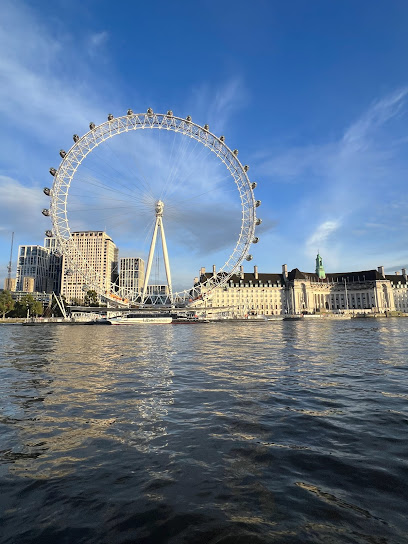
The Queen’s Walk
Explore the scenic Queen's Walk along the Thames River in London, featuring stunning views, vibrant street performances, and delicious dining options.
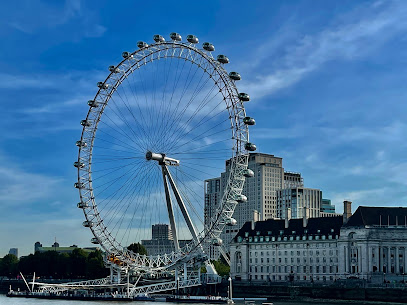
South Bank Lion
Majestic 1837 Coade stone lion guarding Westminster Bridge, symbolizing London’s resilience and rich heritage.
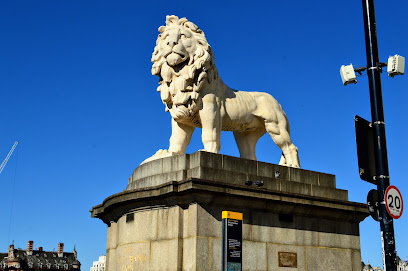
Observation Point
Discover breathtaking views and iconic landmarks at Observation Point, a must-visit scenic attraction along the River Thames in London.
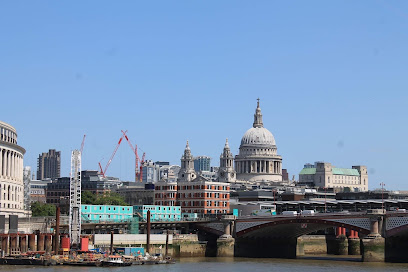
Southbank Boardwalk
Experience the charm of London's Southbank Boardwalk, a serene escape with stunning river views, vibrant culture, and lush gardens.
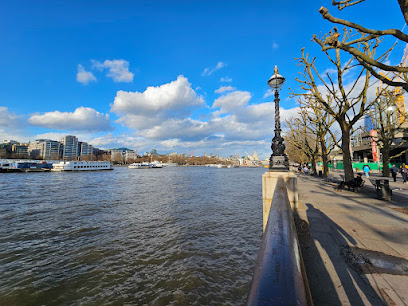
Memorial wall
Explore the Memorial Wall in London—an iconic tribute to resilience, history, and the enduring spirit of remembrance in a serene setting.
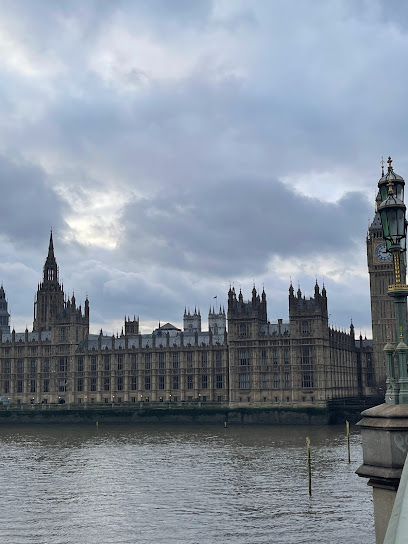
South of the River
Explore the artistic charm of South of the River, home to captivating sculptures and a vibrant cultural scene in the heart of London.
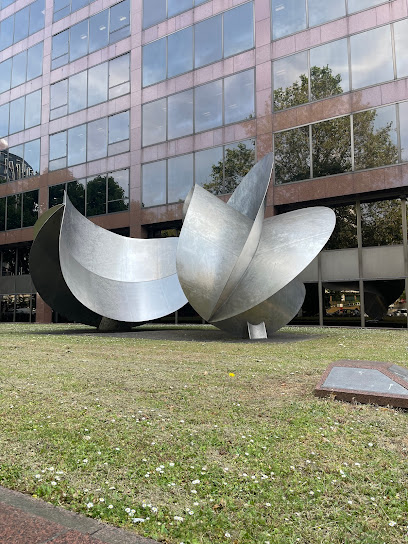
Southbank House
Historic terracotta landmark in Lambeth, blending Victorian pottery heritage with modern creative workspaces.
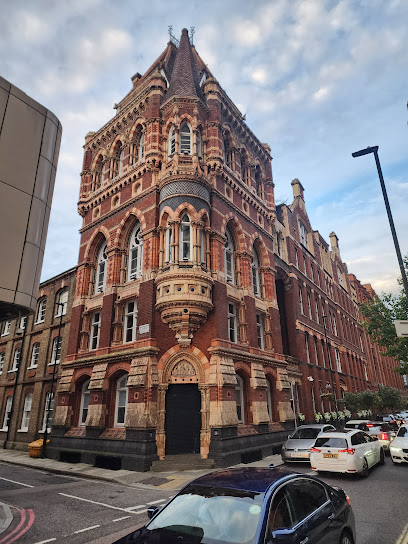
South Bank Community Area
A vibrant riverside cultural and historic district in central London, home to iconic landmarks, arts venues, and scenic Thames views.
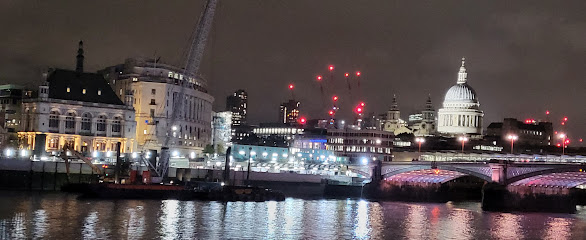
Unmissable attractions to see
SEA LIFE London Aquarium
Dive into a captivating underwater world at SEA LIFE London Aquarium, home to over 5000 creatures across 14 immersive zones on the South Bank.
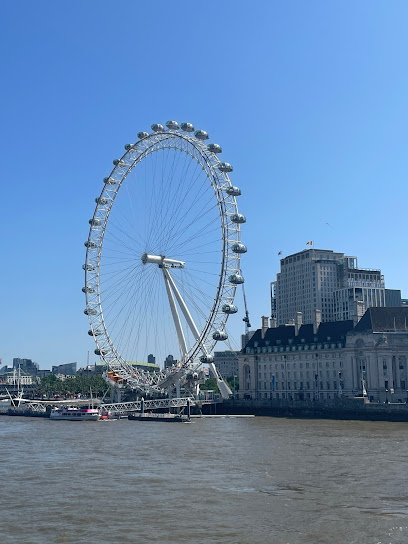
Shrek's Adventure London
Dive into a whimsical, interactive journey with Shrek and friends in London’s enchanting South Bank adventure for all ages.
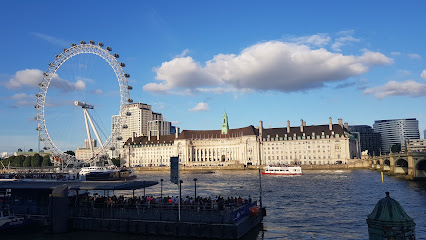
Jubilee Gardens
A peaceful, family-friendly green sanctuary on London’s South Bank with stunning views and a vibrant community spirit.
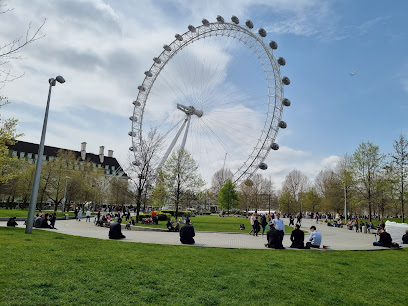
Garden Museum
Discover Britain’s rich gardening heritage in a historic church setting with beautiful gardens, engaging exhibits, and a welcoming café.
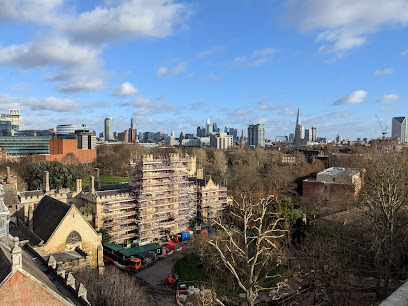
Thames Beach
Discover Thames Beach, a tranquil urban riverside escape with sandy shores, iconic views, and family-friendly charm in the heart of London SE1.
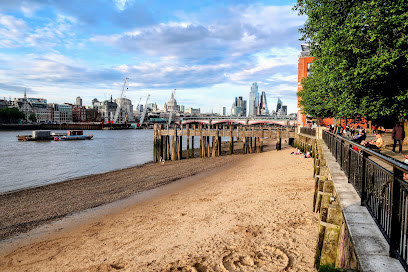
Observation Point
Breathtaking panoramic views of London's iconic skyline from a vibrant riverside vantage on the South Bank.

Essential places to dine
Wahaca Southbank
Experience vibrant Mexican street food in a unique riverside setting with scenic Thames views and lively atmosphere at Wahaca Southbank.
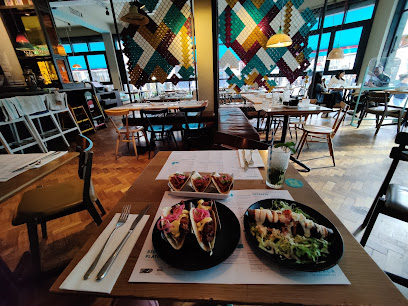
Strada Southbank
Authentic Southern Italian flavors served with vibrant riverside views in the heart of London’s Southbank.
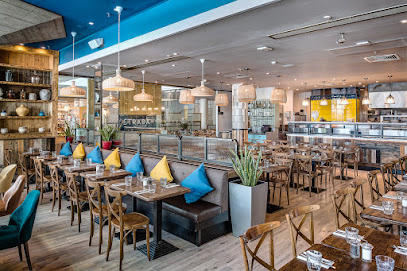
Ping Pong Southbank
Lively Southbank dim sum and cocktail bar blending traditional Chinese flavors with modern Asian fusion in a bustling riverside setting.
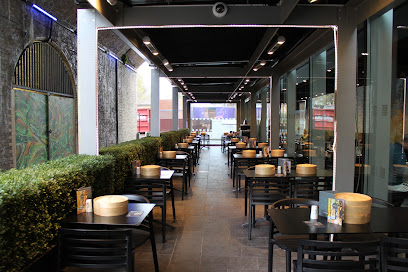
Troia Southbank
Experience authentic Mediterranean and Middle Eastern cuisine with halal options in a vibrant riverside setting near the London Eye.
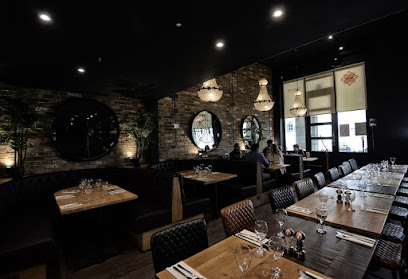
wagamama southbank
Lively riverside pan-Asian dining with fresh, bold flavors and stunning Thames views at London’s Royal Festival Hall.
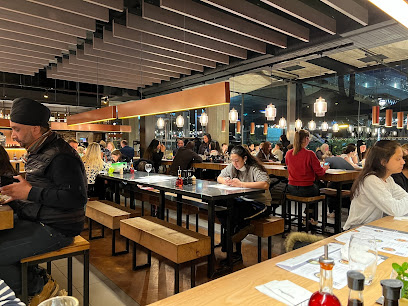
Brasserie Blanc - Southbank
Authentic French brasserie dining with hearty seasonal dishes and rustic charm on London’s lively South Bank.
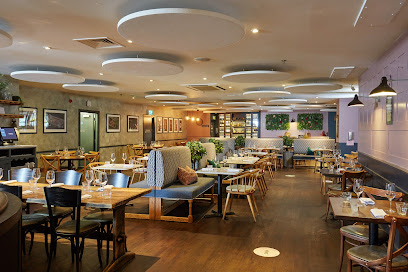
The Archduke
Lively steakhouse and wine bar in Waterloo with superb Scotch beef, classic desserts, and live jazz in a buzzy, inviting atmosphere.
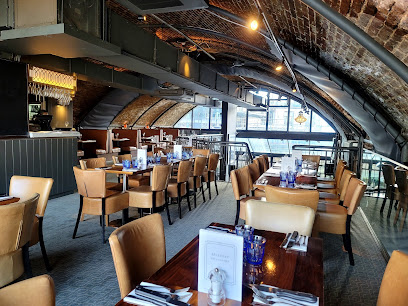
OKAN South Bank
Experience authentic Osaka-style okonomiyaki and Japanese street food in a cozy, lively South Bank eatery with friendly service and a nostalgic vibe.
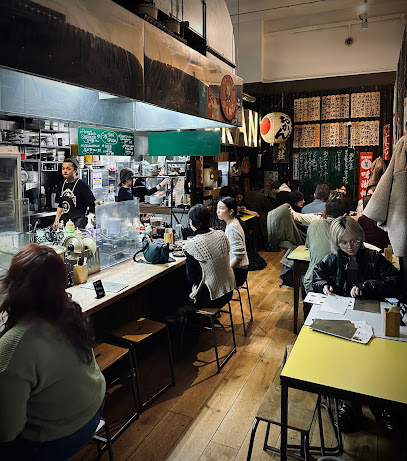
Sea Containers Restaurant
Stylish Modern British dining with iconic Thames views on London’s vibrant Southbank, perfect for brunch, dinner, and special occasions.
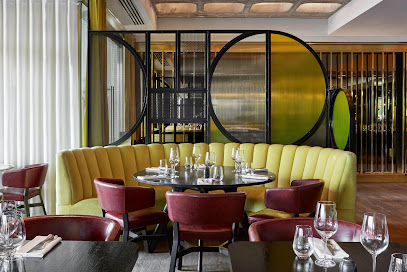
Paradiso Burger & Cocktail Bar Southbank
Vibrant riverside spot in Southbank serving gourmet burgers, cocktails, and bottomless brunch with stunning Thames views.
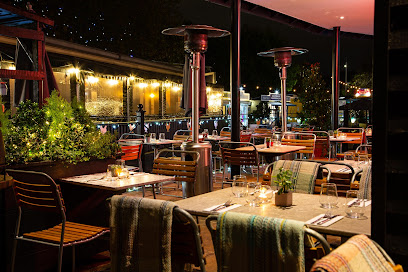
Markets, malls and hidden boutiques
SUCK UK Alternative Gifts (OXO Tower)
Unleash your quirky side at SUCK UK's flagship store in the OXO Tower—quirky gadgets, witty homewares, and inventive gifts that turn ordinary moments into playful delights along London's vibrant South Bank.
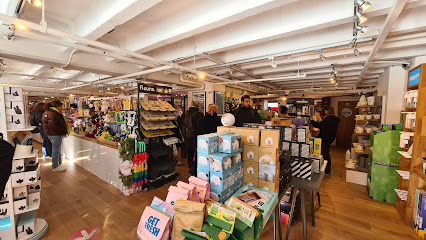
Bankside Arches Boutique
Discover enchanted gifts, crystals, and aromatherapy treasures in Blackfriars Station's hidden boutique gem.
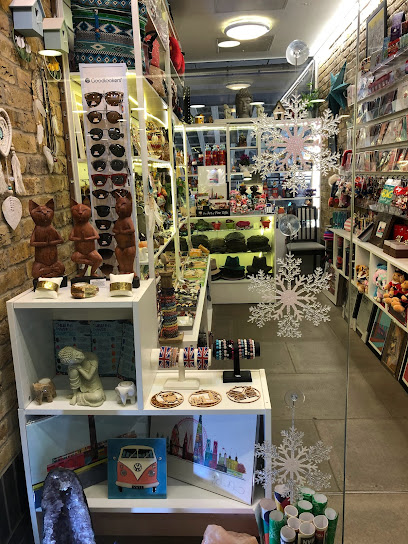
Brand Academy Independent Gift Shop
Dive into a world of whimsical designs and unique finds at this South Bank gem, where global brands meet emerging talents in the heart of Oxo Tower Wharf.
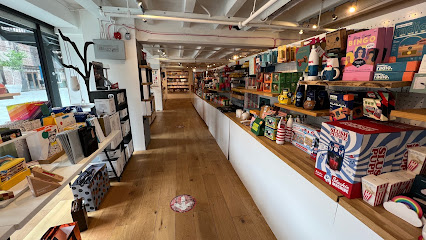
Southbank Centre Shop, Mandela Walk
Discover creative gifts, sustainable homewares, and arts-inspired souvenirs on vibrant Mandela Walk, opposite Royal Festival Hall—a stylish treat amid South Bank's cultural heartbeat.
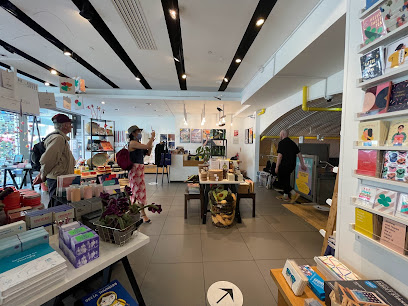
Gift Shop - London Eye Shop
Capture London's magic at the London Eye Gift Shop: exclusive souvenirs, Thames views, and iconic keepsakes from the wheel's base.
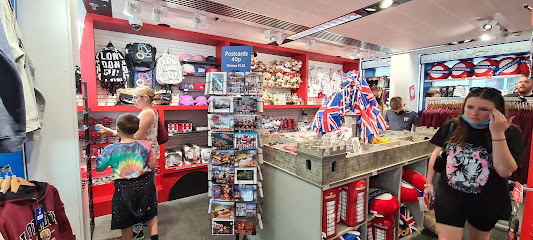
The Giftree London
Discover London's soul in souvenirs, crafts, and conveniences at this Lambeth gem—unique gifts, luggage storage, and local flair await.
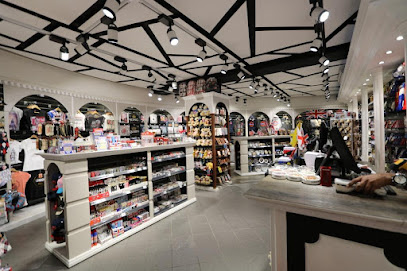
Browns of London
Explore Browns of London for unique handcrafted gifts and local treasures in the heart of the city, perfect for memorable souvenirs from your travels.
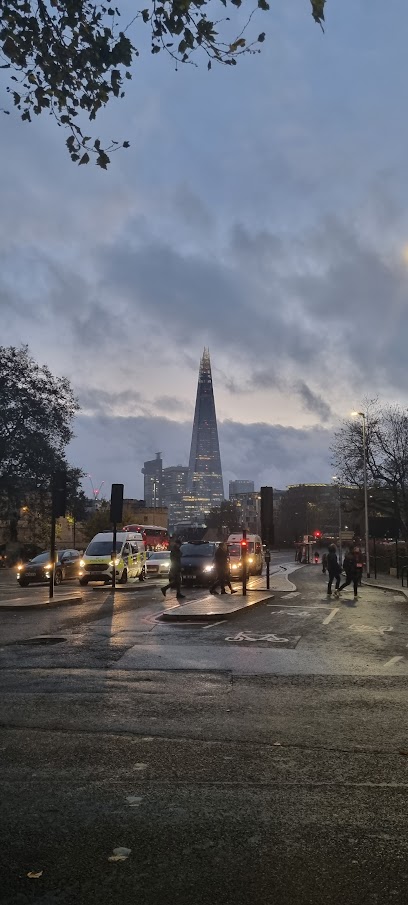
Custom Gifts By Jupiter
Unleash creativity with bespoke gifts and custom decor from this South Bank artisan haven near the Thames and iconic landmarks.
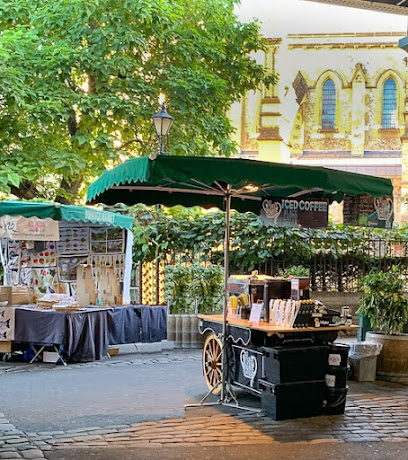
Sugar And Style
Discover design-led fashion accessories in Gabriel's Wharf, London's arty South Bank riverside haven blending style, creativity, and Thames views.
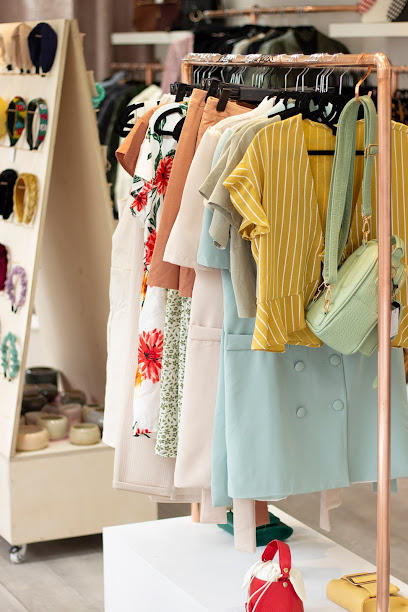
j-me original design ltd
Whimsical designs with a humorous twist from London's Oxo Tower creative hub – quirky home gifts blending fun, function, and British ingenuity.
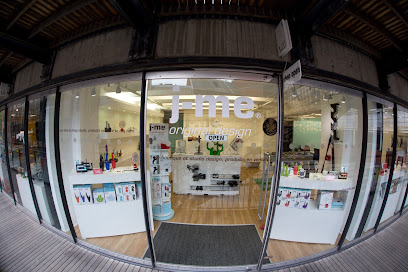
Essential bars & hidden hideouts
All Bar One Waterloo
Sophisticated South Bank bar serving creative cocktails, sharing plates, and wines in a lively spot near Waterloo Station and the London Eye.
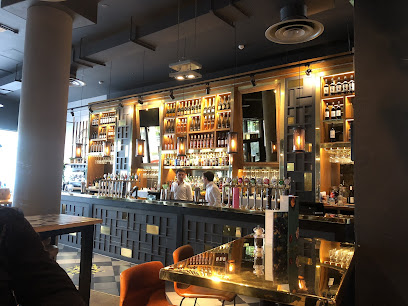
Doggett's Coat and Badge
A large, riverside Nicholson’s pub on Blackfriars Bridge offering classic British fare, real ales and a rooftop terrace with strong Thames views.
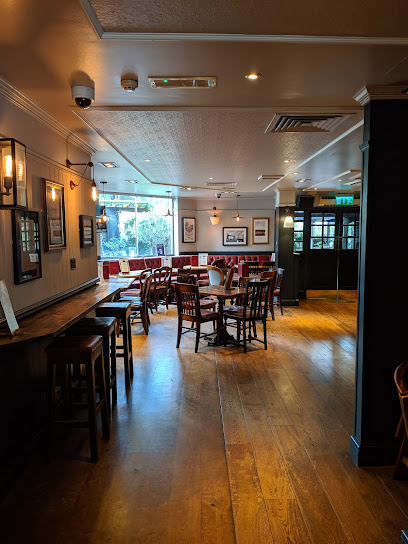
Slug & Lettuce - County Hall
Chic South Bank cocktail haven in County Hall: bottomless brunches, 2-for-1 sips, pub classics, and Thames views for London's liveliest lunches and nights out.
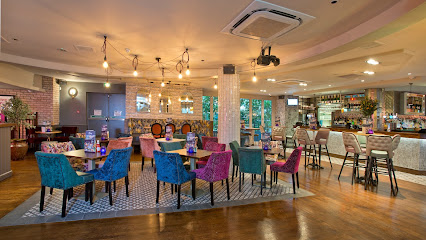
Lyaness
Thames-side cocktail mastery from Mr Lyan: innovative, sustainable drinks with stories, views, and bold flavors in a stylish South Bank haven.
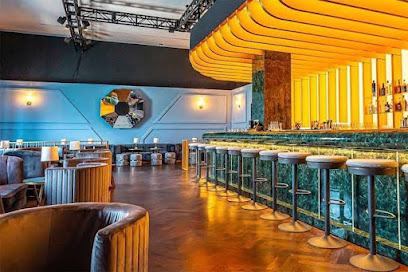
The Understudy
Riverside craft beers, KERB street food, and Thames views at the National Theatre's lively bar – perfect for pre-show bites or late-night hangs on London's South Bank.
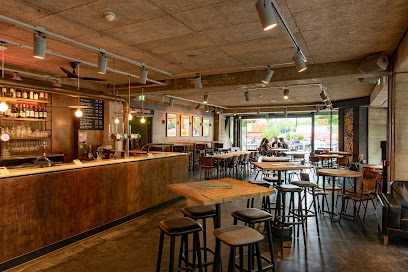
Primo Bar, London
Sophisticated South Bank cocktails and live jazz with Big Ben views—Primo Bar blends daytime lounge ease with electrifying nightly performances in stylish 60s-inspired surrounds.
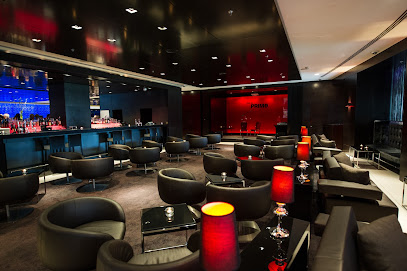
Southbank Centre, Members Bar
Elevated wine bar with Thames panoramas and cultured calm atop Royal Festival Hall—perfect for drinks amid London's arts heartbeat.
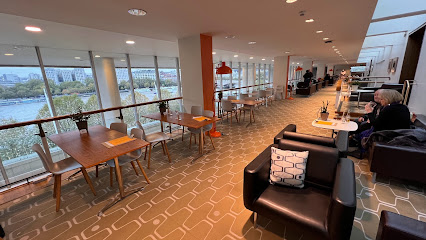
The Thirsty Farrier Cocktail Bar
Seasonal Southbank pop-up serving freshly crafted cocktails in a casual riverside garden setting with bright, walk‑in service.
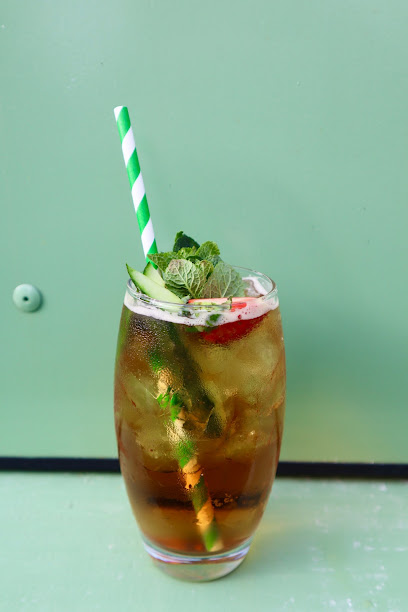
Le Champagne Bar
A compact riverside champagne lounge beside the London Eye—perfect for a celebratory flute and framed Thames views.
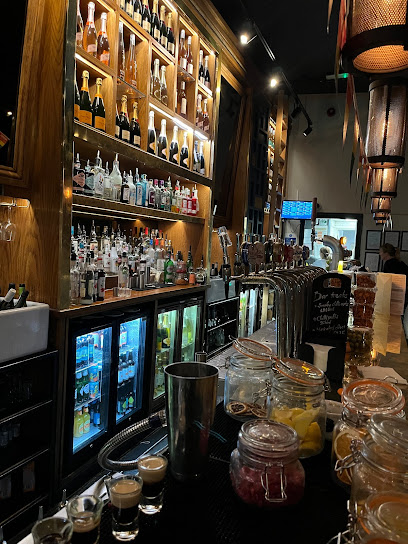
honestfolk Cocktail Bar (Southbank Centre Food Market)
Seasonal cocktails and classics from a cozy mobile bar at Southbank Centre Food Market, where Thames breezes mingle with market buzz and craft libations.
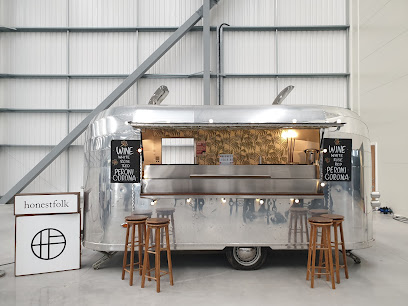
Local Phrases
-
- HelloAlright
[al-right] - GoodbyeTa-ra
[ta-ra] - YesAye
[aye] - NoNah
[nah] - Please/You're welcomePlease/No worries
[please/no-wor-ries] - Thank youCheers
[cheers] - Excuse me/SorryScuse me/Sorry
[scuse-me/sor-ry] - How are you?Alright mate?
[al-right-mate] - Fine. And you?Sound. You?
[sound-you] - Do you speak English?Do you speak English?
[do-you-speak-english] - I don't understandI ain't got a Scooby
[i-aint-got-a-scoo-by]
- HelloAlright
-
- I'd like to see the menu, pleaseCan I see the menu, mate?
[can-i-see-the-menu-mate] - I don't eat meatI'm veggie
[im-veg-gie] - Cheers!Cheers!
[cheers] - I would like to pay, pleaseCan I pay, please?
[can-i-pay-please]
- I'd like to see the menu, pleaseCan I see the menu, mate?
-
- Help!Help!
[help] - Go away!Sod off!
[sod-off] - Call the Police!Ring the Old Bill!
[ring-the-old-bill] - Call a doctor!Get a doctor!
[get-a-doc-tor] - I'm lostI'm lost
[im-lost] - I'm illI'm poorly
[im-poor-ly]
- Help!Help!
-
- I'd like to buy...I'm after...
[im-after] - I'm just lookingI'm just browsing
[im-just-brows-ing] - How much is it?How much is that?
[how-much-is-that] - That's too expensiveThat's dear, that
[thats-dear-that] - Can you lower the price?Can you do it cheaper?
[can-you-do-it-cheap-er]
- I'd like to buy...I'm after...
-
- What time is it?What's the time?
[whats-the-time] - It's one o'clockIt's one o'clock
[its-one-oclock] - Half past (10)Half ten
[half-ten] - MorningMorning
[morning] - AfternoonAfternoon
[after-noon] - EveningEvening
[even-ing] - YesterdayYesterday
[yest-er-day] - TodayToday
[to-day] - TomorrowTomorrow
[to-mor-row] - 1One
[one] - 2Two
[two] - 3Three
[three] - 4Four
[four] - 5Five
[five] - 6Six
[six] - 7Seven
[seven] - 8Eight
[eight] - 9Nine
[nine] - 10Ten
[ten]
- What time is it?What's the time?
-
- Where's a/the...?Where's the...?
[wheres-the] - What's the address?What's the address?
[whats-the-address] - Can you show me (on the map)?Can you show me (on the map)?
[can-you-show-me-on-the-map] - When's the next (bus)?When's the next (bus)?
[whens-the-next-bus] - A ticket (to ....)A ticket (to ....)
[a-ticket-to]
- Where's a/the...?Where's the...?
History of South Bank
-
The area now known as South Bank has roots dating back to medieval times, primarily as a riverside zone outside the jurisdiction of the City of London. It began to develop in the 12th century, with the establishment of the first ferry services across the River Thames, facilitating trade and movement. The area's name reflects its location, being situated on the southern bank of the Thames.
-
The 19th century marked a significant transformation for South Bank, coinciding with the Industrial Revolution. The area became an epicenter of cultural development, notably with the establishment of the Royal Festival Hall in 1951, built as part of the Festival of Britain. This event aimed to boost morale and showcase Britain's recovery after World War II, laying the foundation for South Bank as a cultural hub.
-
In the 1960s, the South Bank Centre was conceived as a major arts complex, comprising the Royal Festival Hall, the National Theatre, and the Hayward Gallery. This initiative further cemented South Bank's status as a centre for the arts and culture, attracting millions of visitors each year and hosting a diverse range of performances, exhibitions, and events.
-
The late 20th and early 21st centuries witnessed extensive urban regeneration efforts in South Bank. The area underwent significant redevelopment, with the introduction of modern architecture and public spaces, including the iconic Millennium Bridge in 2000, which connects South Bank to St. Paul's Cathedral. This transformation has made South Bank a vibrant destination for tourists and locals alike.
-
Today, South Bank is recognized for its dynamic cultural scene, featuring a plethora of theatres, galleries, and festivals. Events like the London Literature Festival and the Meltdown Festival showcase the area's commitment to the arts. Additionally, the riverside walk offers stunning views of the Thames and iconic landmarks, making it a vital part of London's cultural and historical fabric.
South Bank Essentials
-
South Bank is easily accessible from various parts of London. The nearest Underground station is Waterloo (on the Jubilee, Bakerloo, and Northern lines), which connects you to other parts of the city. You can also reach South Bank by boarding a train to Waterloo Station, which services several national routes. Buses are another option, with numerous routes stopping near South Bank. For a scenic route, consider taking a riverboat service along the Thames, which provides a unique perspective of the city.
-
South Bank is pedestrian-friendly, making walking the best way to explore the area. You can also use the London Cycle Hire scheme to rent bicycles, with several docking stations located along the river. The area is well-served by buses and the Underground, and you can easily access attractions like the Tate Modern, the Globe Theatre, and the London Eye via public transport. Additionally, the Thames Clippers riverboat services operate regularly along the river.
-
South Bank is generally safe for tourists, but it is wise to exercise standard safety precautions. Avoid walking alone late at night, especially in less populated areas along the river. Be vigilant in crowded areas, particularly near popular attractions like the London Eye, where pickpocketing can occur. While crime rates are relatively low, areas around Waterloo Station may have higher incidents of anti-social behavior, so stay aware of your surroundings.
-
In case of an emergency, dial 999 for police, fire, or medical assistance. The nearest hospital is St Thomas' Hospital, located a short walk from South Bank. It is advisable to have travel insurance that covers medical emergencies. For minor health issues, there are pharmacies in the area where you can purchase over-the-counter medications.
-
Fashion: Do wear comfortable shoes for walking, as South Bank has lots of attractions to explore. Don’t wear overly casual attire if you plan to visit a theatre or fine dining establishment. Religion: Do respect the customs at religious sites like Southwark Cathedral. Always be quiet and respectful. Public Transport: Do have an Oyster Card or contactless payment ready for easy travel. Don’t block doors or aisles when using public transport. Greetings: Do greet with a smile and make eye contact; it’s generally friendly. Don’t interrupt conversations; wait for a pause before joining in. Eating & Drinking: Do try local street food vendors along the South Bank. Don’t consume alcohol in public spaces unless permitted.
-
To experience South Bank like a local, visit Borough Market, one of London's oldest and largest food markets, just a short walk away. Attend free events and festivals that often take place along the river, particularly in summer. Engage with the street performers and artists that bring the area to life. Try to catch a performance at the National Theatre or the Southbank Centre for a taste of local culture. For a quieter spot, head to Gabriel’s Wharf, which offers charming cafes and boutique shops away from the crowds.
Nearby Cities to South Bank
-
Things To Do in Windsor
-
Things To Do in Cambridge
-
Things To Do in Oxford
-
Things To Do in Stratford-upon-Avon
-
Things To Do in Bath
-
Things To Do in Birmingham
-
Things To Do in Bristol
-
Things To Do in Nottingham
-
Things To Do in Nieuwpoort
-
Things To Do in Ostend-Bruges International Airport
-
Things To Do in Cardiff
-
Things To Do in Ostend
-
Things To Do in De Haan
-
Things To Do in Ypres
-
Things To Do in Blankenberge













